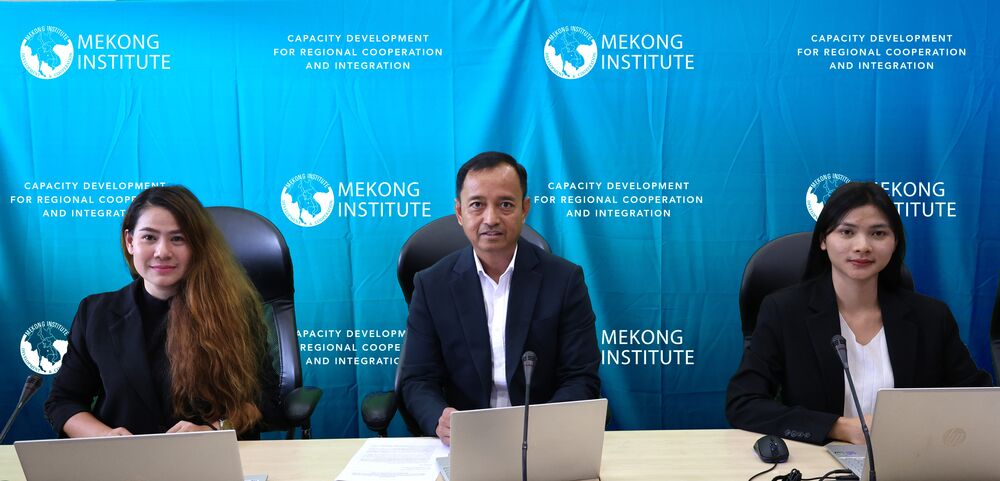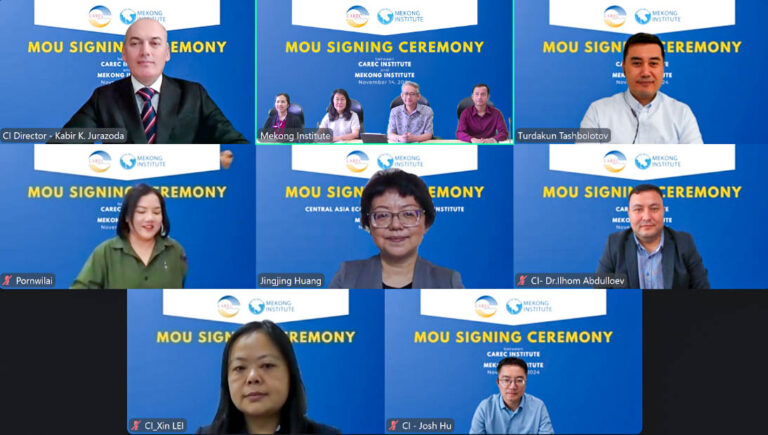To explore how technology and digital economy can support growth and development of MSMEs, Mekong Institute (MI), in collaboration with the People’s Government of the People’s Republic of China, organized an Expert Dialogue on “Shaping the Digital Future: Pathways to Enabling Digital Connectivity Ecosystem for Post-Pandemic Resilience in the Lancang-Mekong Countries” on December 14, 2023. The online event gathered over 120 stakeholders from the region, including experts and government officials, to delve into crucial aspects of digital empowerment and connectivity.
In his opening remarks, Mr. Rithy Buth, MI’s Director of Finance and Operations, underscored the significance of collaborative efforts in navigating the complexities of the post-pandemic era. He thanked the diverse panel of speakers from the public and private sectors across the Lancang-Mekong Countries who shared insights, experiences, and innovative strategies, fostering a collaborative spirit for sustainable digital growth.
Prof. Dr. Liu Yun, Director of Yunnan Digital Ecosystem Engineering Research Center Kunming University of Science and Technology Yunnan, China, presented his research findings on “Empowering MSMEs in Lancang- Mekong Countries: Unleashing the Potential of Scalable Digital Technologies for Post-Pandemic Resilience” to the audience. Six key points were put forward as contributing factors to the empowerment of MSMEs, which include trust, infrastructure, capacity building, education, financial support and collaborations and connections.
A pinnacle of a series of activity under the “Scaling-Up Digital Connectivity for Micro, Small, and Medium-sized Enterprises in the Lancang-Mekong Countries for Post-Pandemic Resilience” capacity development initiative was moderated by Mr. Tiat Jin (TJ) OOI, Founder & Principal Consultant at Curated Connectors. The discussions featured esteemed panelists, including Dr. Hing Vutha, Mr. Litthideth Khamhoung, Ms. Wah Wah Min, Mr. Liu Qixin, Mr. Din Suphawat, Mr. Traitip Siriruang, and Ms. Le Kim Hue, deep diving into the role of MSMEs in shaping the digital future and enabling digital connectivity ecosystems in the Lancang-Mekong region.
The Q&A session witnessed active participation, robust discussions, and exchange of ideas, further solidifying the collaborative commitment to driving sustainable digital growth.
The dialogue concluded on a note of optimism, with a shared commitment among the participants to work towards a future conducive for MSMEs empowerment and connectivity as well as a resilient, interconnected, and digitally driven economic landscape.








